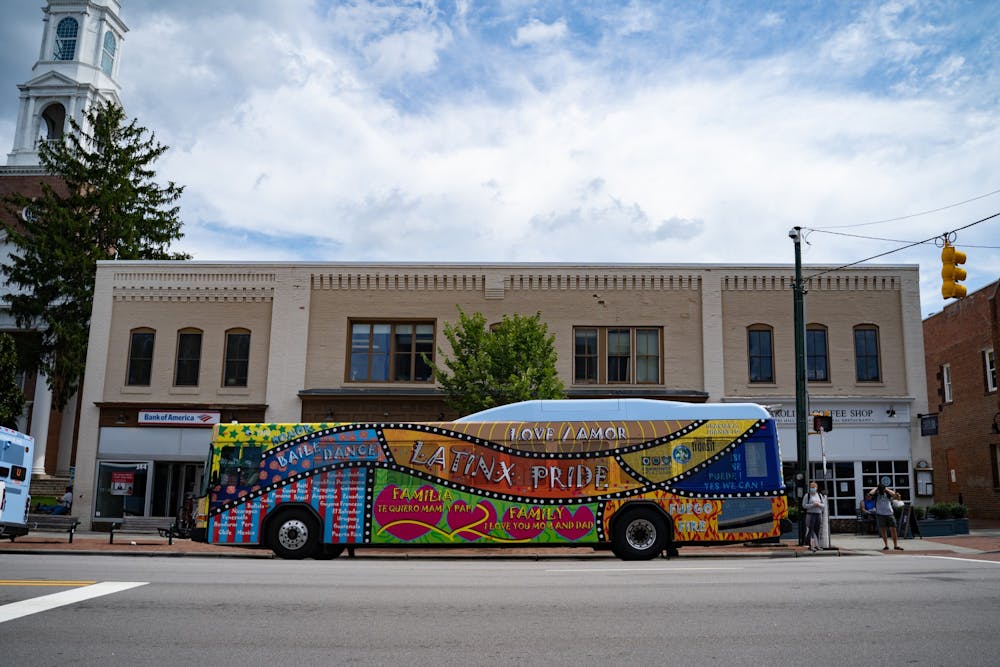The Latinx Pride bus hit the streets of Chapel Hill this month.
Designed by artist Georges Le Chevallier, the bus was born through a partnership between Chapel Hill Transit and Chapel Hill Community Arts & Culture.
Le Chevallier, the son of a Puerto Rican mother and a French father, grew up in Puerto Rico. He said he drew inspiration from brightly painted buses, called “chicken buses,” in Guatemala.
“I don't want to tell stories, I want to create feelings,” said Le Chevallier. “I try to stay away from figurative work because I think once you start with figurative work, you start including and excluding a lot of people. But if you deal with just words and colors and patterns, that's a way for anybody to read into the artwork.”
Le Chevallier said he hopes non-Latino residents will see the bus, learn the Spanish and English words and realize they probably know more Spanish than they think.
“I want them to learn acceptance,” he said. “Maybe that’s one way to humanize Latino immigrants.”
Chapel Hill Community Arts & Culture called for artist proposals for the Latinx bus in February.
Le Chevallier said he drew his concept for the bus in a crowded Starbucks. His life since then has changed in ways personally and globally, he said. Out of public art projects in Guatemala, Chile, France, Tanzania and the United States, Le Chevallier said this will be his most memorable.
The words ‘Familia,’ ‘Te quiero mami y papi’ and ‘Family,’ ‘I love you mom and dad’ adorn the bus. Le Chevallier said his mother and father passed away as he worked on this project, and he pays homage to them in its design.



